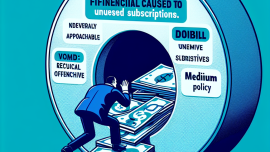
Building My First Emergency Fund: What Worked and What Didn’t
Understanding Your Paycheck: A Simple Guide to What You Actually Take Home
Ah, payday. That magical moment when your employer shows you a number, taxes wave goodbye to a good chunk of it, and you’re left wondering, “Wait… where did all my money go?” If you’re new to the workforce, or even if you’ve been at it for a while but still get a mild panic attack every time you see your paystub, this guide is for you.
I’m Thomas “Tom” Bradley — think of me as your financial big brother. No judgment, no jargon, just straight talk about money so you can stop feeling confused and start feeling in control.
What Is Your Paycheck, Really?
Let’s start at square one. Your paycheck is the money your employer gives you in exchange for your valuable time, labor, and let’s be honest, tolerance for endless Zoom meetings. But there’s a big difference between your gross pay (the total amount you earn before any deductions) and your net pay (what actually lands in your bank account).
Think of gross pay as your earnings before the world takes its share. Net pay? That’s what you actually get to use to buy tacos or pay rent. (Please prioritize tacos… I mean, rent.)
Breaking Down the Paystub
Your paystub — that slip of paper you toss aside or that digital thing you never open — is packed with useful information. Let’s break it down into plain English:
1. Gross Pay
This is the total amount you earned during the pay period, before any deductions. It includes:
- Hourly wages or salary
- Overtime pay
- Bonuses or commissions
2. Federal Income Tax
This is money that goes to Uncle Sam. The amount depends on your income level and how many tax exemptions you claimed on your W-4 form. Tip: if you don’t know what your W-4 is, you probably filled it out on your first day of work. Pro tip: revisit it yearly — you might be overpaying or underpaying.
3. Social Security and Medicare (FICA Taxes)
FICA stands for the Federal Insurance Contributions Act. Sounds fancy, right? It’s really just:
- 6.2% for Social Security – to help support retirees (think of it as paying it forward).
- 1.45% for Medicare – to help cover healthcare for those over 65.
4. State and Local Taxes
Depending on your state (hello Texas or Florida, you lucky no-income-tax folks!), you might see additional deductions for state or city taxes. These vary widely — some states don’t take a penny, while others… well, let’s just say they make up for the sunshine.
5. Benefits and Deductions
If your job includes benefits like health insurance or a retirement plan, contributions will be taken out of your paycheck. These can include:
- Health, dental, or vision insurance
- 401(k) or retirement contributions
- Transportation reimbursement
- Flexible Spending Accounts (FSAs)
Some deductions are pre-tax, meaning they lower your taxable income (and tax bill), which is always a nice bonus.
Direct Deposit vs Paper Check
Modern workplaces mostly use direct deposit — a quick, secure way to automatically drop your net pay into your bank account. But some employers still issue paper checks. If that’s the case, I hope you have a nearby bank or, at the very least, a corner store with a low-fee check-cashing option. I won’t judge… but your bank might.
Understanding Pay Frequency
How often you get paid has a bigger impact on your budget than you might think. Here are the most common pay schedules:
- Weekly – You get paid every week. That’s 52 paychecks a year.
- Biweekly – Every other week. That’s 26 paychecks a year.
- Semimonthly – Twice a month, usually on the 15th and last day. That’s 24 paychecks.
- Monthly – Once a month. That’s 12 big, scary paychecks to manage wisely.
Don’t confuse biweekly and semimonthly — it matters for budgeting and planning, trust me.
Common Surprises on a Paycheck
If you’re staring at your paystub and something looks… weird, don’t panic. Here are a few things that might pop up:
- Retroactive pay – If you got a raise that applies to past work weeks.
- Bonuses – These often get taxed at a higher rate (yep, it’s brutal).
- Wage garnishment – If you owe child support or defaulted on loans.
Why Your Take-Home Pay Is Less Than You Expect
Let’s say your job offer said $50,000 a year. That’s not what you’re taking home. Some of it goes to taxes, insurance, and retirement (if you’re saving for the future like a responsible adult — I see you). On average, you might bring home about 70-80% of that gross amount, and knowing this helps prevent budget heartbreak.
Bonus Tip: Don’t Ignore Your Paystub
It’s tempting to set it and forget it. But mistakes happen — someone might enter your hours wrong, deductions could double up, or benefits may be missing. Reviewing your paystub each pay cycle takes five minutes, but it can save you hundreds, even thousands, a year.
You can ask your HR rep or payroll department for help if something doesn’t look right. Remember: this is YOUR money. It’s okay to ask questions.
Final Thoughts: Own Your Income
Understanding your paycheck is one of the most basic (yet underrated) steps in financial freedom. You work hard for your money — knowing where every dollar goes is just smart living.
If you’re ready to keep leveling up your money game, stay with us here on Financeone. We’re here to make the complicated stuff simple and the boring stuff (dare I say?) kind of fun.
And hey, if you still have a question like “Is net pay a fishing term?” you can always contact us. We don’t bite.
— Tom









Leave a Reply